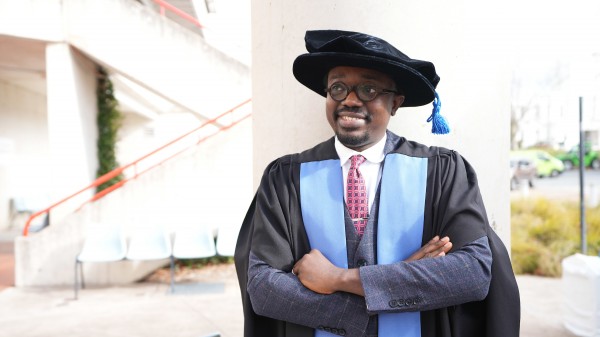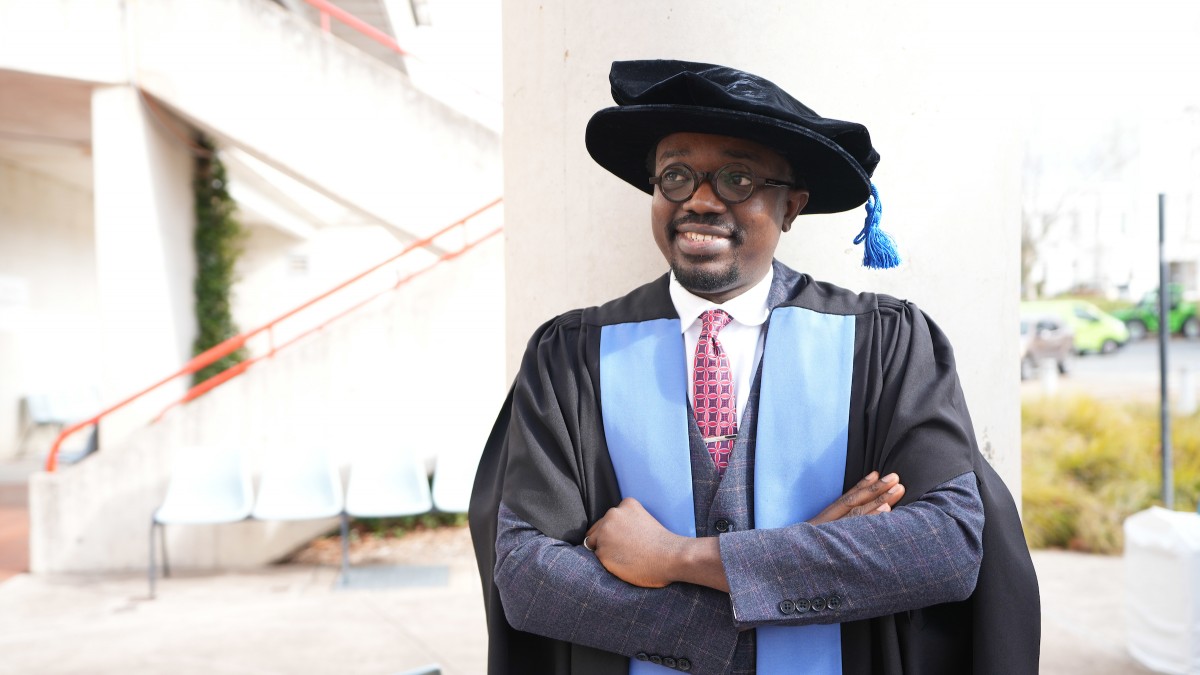
Dr Patrick Osewe
Health outcomes in Asia and the Pacific have improved dramatically in the past 50 years, but Dr Patrick Osewe warns that now is not the time for complacency.
“The region is faced with significant challenges, including the rise of non-communicable and chronic diseases, an ageing population, prolific urbanisation and the threat of future epidemics,” he says.
As Chief of the Health Sector Group at the Asian Development Bank, Dr Osewe has a role of tsunamic proportions: his team works with colleagues across sectors to assist governments in the region to hold back the tidal wave of health challenges coming their way.
One week he might be lobbying tech billionaires or ministers of finance for assistance in reducing the economic impact of global epidemics; the next week he might be here at The Australian National University, leveraging our specialist expertise in issues like drug resistance antibiotics or managing the health impacts of climate change.
His goal is to provide affordable healthcare to all of the almost five billion people who call Asia and the Pacific home.
“Currently around 70 per cent of health services in some countries in the region are provided by the private sector,” he says.
He says the challenges of providing healthcare coverage for all are exacerbated by an unprecedented rate of urbanisation.
“Every day in the region, around 120,000 people will move to a city,” he says. “That puts massive pressures on service delivery. Since we can’t build enough clinics, train enough doctors, train enough nurses fast enough, we must therefore think outside the box if are to achieve Universal Health Coverage in the region”
Within Asia and the Pacific, you will also find the most rapidly ageing populations on Earth, with the highest rates of chronic diseases, such as diabetes and heart disease.
“Over the past 50 years, life expectancy has increased from an average of 46 years to 71 years,” he says. “And as people grow older, they develop more chronic illnesses.”
Dr Osewe recently visited Canberra to lead collaborations between ANU and the Asian Development Bank in areas where research, education and evidence-based policy can play a key role in building capacity in regional health and medicine.
The visit included workshops on how health security, urbanisation and climate change are affecting health in the region, with involvement from health and development representatives from the Federal Government.
Dean of the ANU College of Health & Medicine, Professor Russell Gruen, invited Dr Osewe to the University to give a lecture in the ‘Medical Moonshots’ series and to receive an honorary appointment to the College.
“Being a visiting academic provides me with an opportunity to engage with colleagues across the entire University and to tap into their knowledge and skills,” Dr Osewe says.
Students from ANU will, in turn, have the opportunity to undertake research in the field and contribute to the Asian Development Bank’s efforts to support countries to achieve UHC and ensure cities in the region are more liveable.
“A liveable city should have clean air and clean water,” Dr Osewe says. “The roads should be safe, and if you happen to get sick, then there is a clinic where you can go and quickly get treated.”










